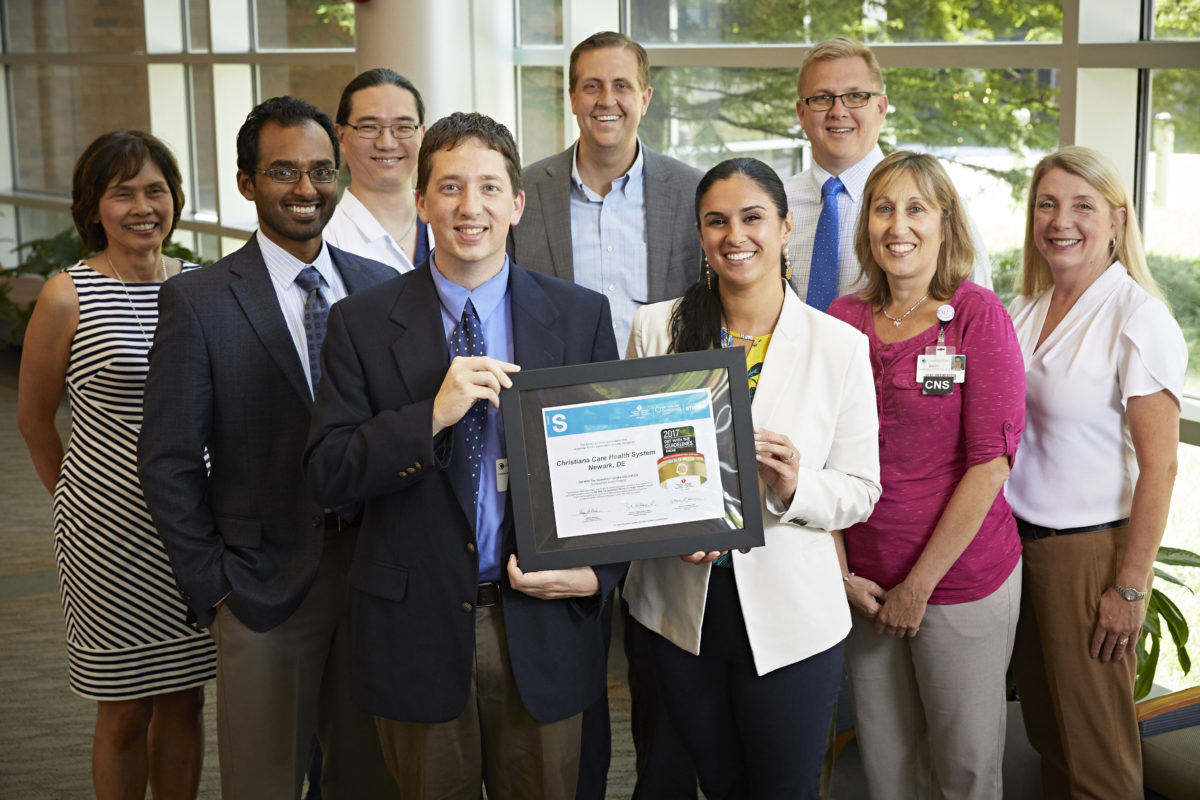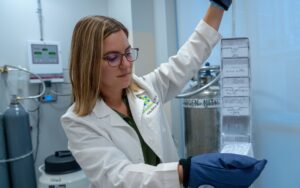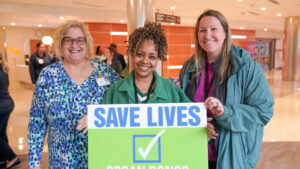Christiana Care’s commitment to providing the highest standards of care and rapid access to life-saving treatments has earned a suite of awards from the American Heart Association/American Stroke Association, recognizing the health system’s success in delivering exceptional care for heart disease and stroke.
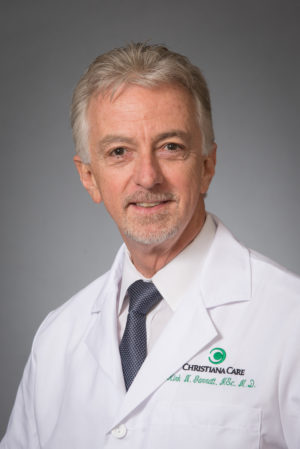
For its performance throughout 2016, Christiana Care earned top honors across the board: Gold Plus Achievement status in Get with the Guidelines, Heart Failure; the Mission: Lifeline Gold STEMI Award; Gold Plus Achievement status in Get with the Guidelines, Stroke; and Elite Plus status on the Target: Stroke Honor Roll.
“These accolades reassure our team that we’re doing what we need to be doing, that we have our eye on the ball,” said Kirk Garratt, M.D., MSc., John H. Ammon Chief of Cardiology and associate medical director of the Center for Heart & Vascular Health.
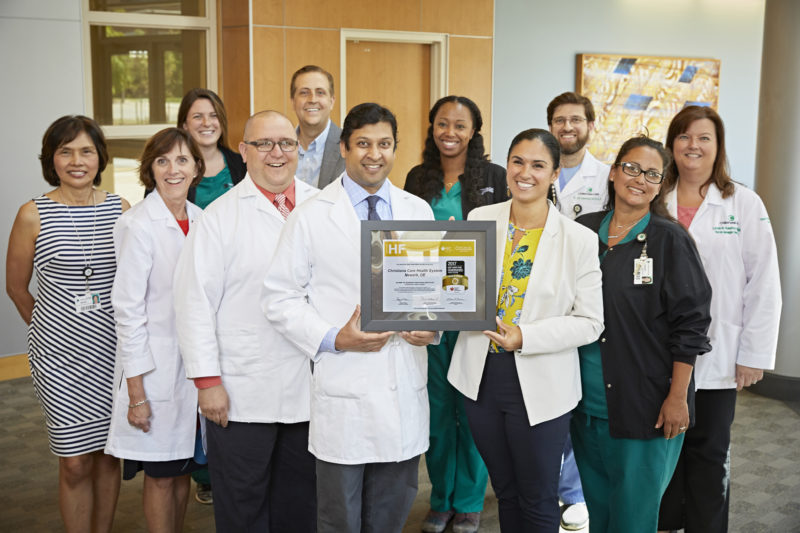
“It’s one thing to do data analysis internally and feel good about our accomplishments,” Dr. Garratt said. “It’s quite another when an outside agency of the caliber of the American Heart Association takes an objective look at what we’re doing and says we deserve these awards.”
To earn Gold Plus Quality Achievement status, hospitals must demonstrate 85 percent or higher adherence to all Get With The Guidelines achievement indicators for two or more consecutive 12-month periods and achieve 75 percent or higher compliance with a certain number of Get With The Guidelines quality measures.
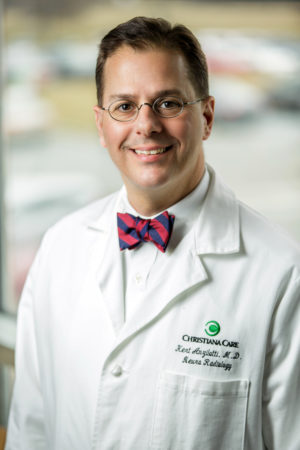
A strong multidisciplinary team effort is the key to enabling Christiana Care to ensure optimal treatment of heart failure and stroke patients at every point in their care, and to finding new ways to constantly improve, said Kert Anzilotti, M.D., MBA, chief medical officer, acute care. “This recognition is an affirmation that the care we’re giving to patients with acute stroke is on par with the best institutions in the country,” he said. “It’s validation that our efforts are resulting in better outcomes and that we’re achieving the measurement that these awards represent.”
He highlighted the critical importance of achieving excellence for these patients at every step.
“These are among the sickest patients we have in cardiology,” he said of those living with heart failure. “Complication rates are not trivial. Challenges and management are not trivial. Our team has done an amazing job of caring for these people, and it’s wonderful to see them recognized.”
The awards also demonstrate the outstanding caliber of work being done at Christiana Care, which in turn attracts high-caliber staff who continue to improve the programs, he said.
Sourin Banerji, M.D., interim medical director of the Heart Failure Program, credits the nurse navigators with identifying heart failure patients, providing them education during their hospitalization, tracking them to ensure they have a timely follow-up appointment and facilitating their continued care as their life and medical situations change.
“These awards really distinguish us out of the entire Delaware region as providing a multifaceted, excellent standard of care to our community and continually working to improve our quality of care,” Dr. Banerji said.
Christiana Care’s excellence in stroke care is perhaps best demonstrated by the speed with which patients are diagnosed and receive appropriate treatment — often with dramatic results.
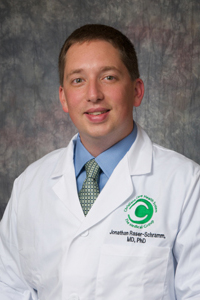
“Time is brain,” said Jonathan Raser-Schramm, M.D., Ph.D., medical director of Christiana Care’s Comprehensive Stroke Program.
When a stroke patient arrives at the hospital, his brain is dying, he said. For every 15-minute delay in restoring blood to the brain, a patent’s chance of being able to walk out of the hospital and return directly to home is reduced by 4 percent.
The Elite Plus status on the Target: Stroke Honor Roll recognizes Christiana Care’s success in achieving a “door-to-needle time” — the average amount of time that elapses from when a patient arrives at the hospital to when they receive the clot-busting drug tPA — of only 35 minutes. That’s 10 minutes faster than the national target of 45 minutes.
Over the past five years, staff has focused on removing any conceivable delay, said Mary Ciechanowski, MSN, APRN, ACNS-BC, CCRN, program coordinator for the Comprehensive Stroke Center. Sometimes, a patient receives the intravenous therapy within as little as 9 minutes.
Because Christiana Care is a comprehensive stroke center, the staff is trained and equipped to treat the most complex strokes, including those requiring surgery. Christiana Care’s neurointerventional surgery team uses advanced, minimally invasive techniques to remove blockages inside blood vessels in the brain.
Within our region of Southeastern Pennsylvania, Eastern Maryland, Southern New Jersey and Delaware, Christiana Care is the only center to achieve Comprehensive Stroke Center designation outside of centers in urban Philadelphia or Baltimore. Other stroke centers in the region are designated as primary, she said, and refer the most complex cases to Christiana Care.
